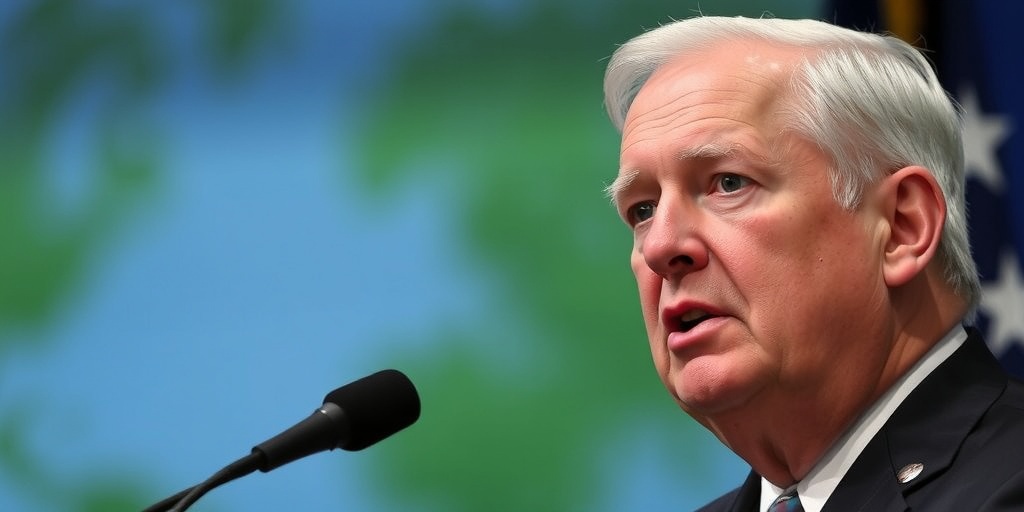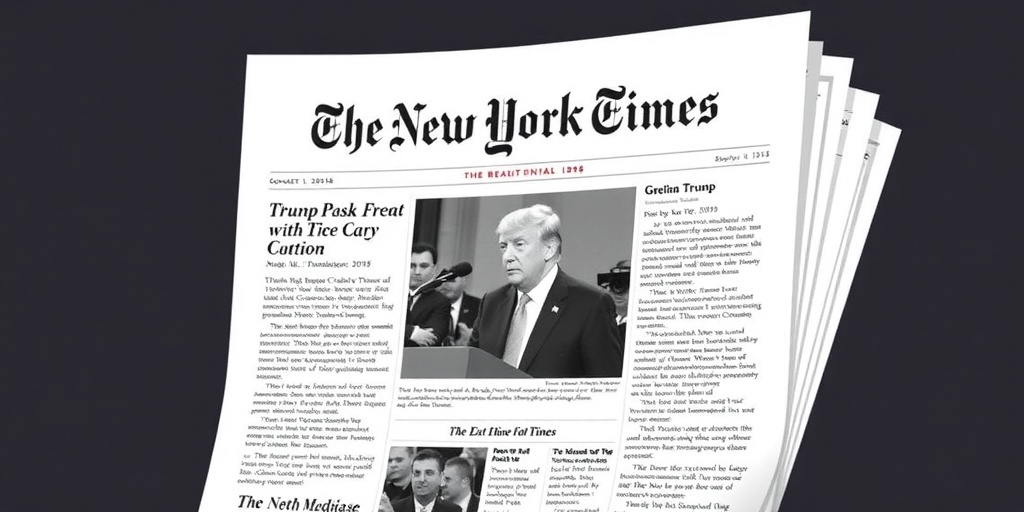Now Reading: Criticism Arises Over Firing of Joint Chiefs Chairman and Others
-
01
Criticism Arises Over Firing of Joint Chiefs Chairman and Others
Criticism Arises Over Firing of Joint Chiefs Chairman and Others

Political Fallout from the Ouster of General Charles Q. Brown Jr. as Chairman of the Joint Chiefs of Staff
The recent dismissal of General Charles Q. Brown Jr. as the chairman of the Joint Chiefs of Staff by President Donald Trump has ignited a wave of condemnation from Democrats and some military veterans who view the action as a politically motivated purge of military leadership. Critics argue that the firing reflects a troubling trend within the Trump administration, aimed at replacing experienced military leaders with those who are aligned with the President’s political ideology.
On Friday evening, President Trump revealed that he would be replacing General Brown with retired Air Force three-star general Dan Cain, a relatively unknown figure in comparison. Accompanying this notable change were five additional dismissals of Pentagon officials, all part of what Trump and Defense Secretary Pete Hegseth described as a necessary overhaul to eliminate "woke" military leadership in favor of officers who embody a more traditional "warrior culture."
Retired military figures, including Rear Admiral Mark Montgomery, have expressed deep concern over General Brown’s ousting. Montgomery described Brown as a "proven war-fighter" who played a crucial role in the military, arguing that his dismissal represents a significant loss to the armed forces. He cautioned that additional firings of high-ranking officers would have grave implications for morale and the operational readiness of U.S. military forces.
Senator Jack Reed, a Rhode Island Democrat and the ranking member of the Senate Armed Services Committee, issued a stern statement condemning the President’s decision. He labeled the dismissal as part of a larger, premeditated effort by Trump and Hegseth to remove capable officers, asserting that such actions would erode the professionalism essential to the military and deliver a "chilling message" to service members.
In a united voice, the bipartisan group "National Security Leaders for America," which includes former military and civilian leaders, condemned the trend of dismissing senior military officers without justification. The group expressed concerns that such firings undermine the military’s strength and bolster adversaries like Russia and China, who may exploit the situation.
Representative Adam Smith, the top Democrat on the House Armed Services Committee, characterized the event as a "Friday night massacre," suggesting that the dismissals instigated chaos within the military structure and weakened the national defense. Smith praised General Brown’s character and achievements, emphasizing that he has earned respect across the political spectrum for his decades of dedicated service. He criticized Trump for prioritizing loyalty over competence in his personnel decisions, arguing that this leads to dangerous consequences for the nation.
Further adding to the discourse, Senator Richard Blumenthal of Connecticut voiced that the firings were driven by politics rather than merit, suggesting that adversarial nations would celebrate the disruption within the U.S. military. Senator Adam B. Schiff and Senator Mark Kelly also voiced their concerns, with Kelly noting that the dismissals disrespected the sacrifices made by service members.
Senator Elissa Slotkin of Michigan, a former Pentagon official, stated that Trump’s actions should raise alarms for all Americans who value a military free from political influence. She noted, "For most of our history, leaders from both parties have largely kept their political activities separate from how they handle the military," but warned that the current administration has shattered that precedent.
The dismissals come in the context of ongoing Republican criticism of what they perceive as the Pentagon’s alignment with liberal agendas during President Biden’s administration. GOP figures have accused the military of being overly focused on diversity initiatives as opposed to traditional military readiness.
Despite the criticism from Democrats and former military officials, many Republican lawmakers have remained largely mute about General Brown’s firing. While some acknowledged his commendable service, they refrained from vocally challenging the President’s authority in making such decisions. Senator Roger Wicker, Chairman of the Armed Services Committee, expressed confidence in Trump’s ability to select a capable successor but did not offer specific praise for the incoming General Cain.
Former National Security Adviser John R. Bolton, who previously faced repercussions for his own clashes with Trump, has publicly denounced the firing as a mistake. He emphasized that such actions contribute to the politicization of the military, which could have severe long-term ramifications for national security.
This ongoing controversy reflects deeper tensions in American military and political life, as the roles of leadership, loyalty, and efficacy continue to be on trial in an increasingly polarized environment. As the dust settles from this latest shake-up in military leadership, the implications for the future of the U.S. armed forces remain uncertain.
Stay Informed With the Latest & Most Important News
Previous Post
Next Post
-
 01New technology breakthrough has everyone talking right now
01New technology breakthrough has everyone talking right now -
 02Unbelievable life hack everyone needs to try today
02Unbelievable life hack everyone needs to try today -
 03Fascinating discovery found buried deep beneath the ocean
03Fascinating discovery found buried deep beneath the ocean -
 04Man invents genius device that solves everyday problems
04Man invents genius device that solves everyday problems -
 05Shocking discovery that changes what we know forever
05Shocking discovery that changes what we know forever -
 06Internet goes wild over celebrity’s unexpected fashion choice
06Internet goes wild over celebrity’s unexpected fashion choice -
 07Rare animal sighting stuns scientists and wildlife lovers
07Rare animal sighting stuns scientists and wildlife lovers





















